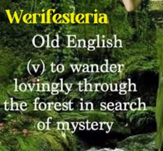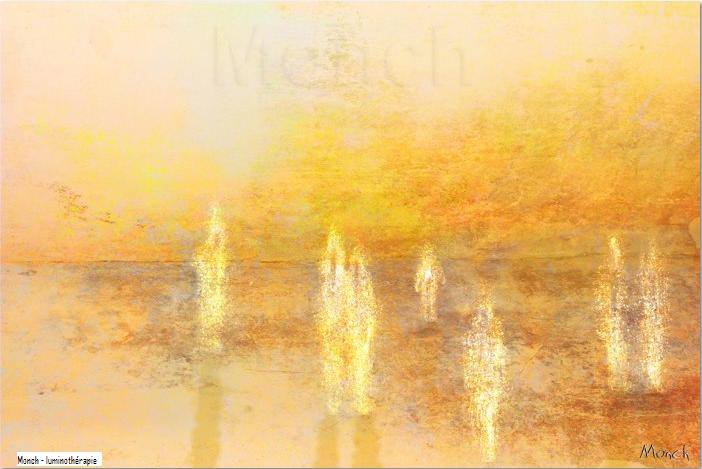Weri What?

There is a word or meme that pops up from time to time on social media: It is “Werifesteria”.
Here is a cropped image of a typical post citing this “word”:

Does it matter that the word doesn’t actually exist in any dictionary and that it is not in any form or fashion an Old English term?
Before I climb up onto my very high linguistic horse, permit me to comment that the sentiment is a lovely one. The mere fact of its popularity would seem to indicate that the notion it purports to express is something we collectively desire but have no word in English to articulate.
From what little research I was able to do, it would seem that the word was created sometime in late 2014. Who coined it appears a mystery, although quite possibly it originated with a musician or lyricist.
Whoever you are, the sentiment is of merit: Nicely done.
The word and its component parts do not correspond to anything in Old English, Anglo Saxon, Frisian, Old Germanic or even from the Latin (in fact, it is no more “Latin” than Seinfeld’s "Festivus – the holiday for the rest of us”).
Furthermore, the meme cites this word as a verb. So “we werifesteria”? What would be the past tense; “he werifesteriaed yesterday”?
Quibbles aside, the Germans actually have a word that is close in meaning: “waldeinsamkeit”.
It is without a direct English translation. It can best be described as “the feeling of being alone in the woods or the soothing solitude of the forest”. The word is a combination of “wald” meaning forest, and “einsamkeit” meaning loneliness or, more precisely, solitude, whereas “samkeit” means sweetness.
My goodness, such precision. But alas, in English it doesn’t exist.
Is it important that social media claims this to be a real word, to be truthful? Maybe.
According to a quote from Vladimir Lenin (assuming he even said this):
“A lie told often enough becomes the truth.”
And it is this notion that concerns me.
Would you like to read other posts? If so, please click the Homepage link below:

You, Dear Reader, are much needed and appreciated.
Everything written requires a reader to make it whole. The writer begins, then you, dear reader, take in the idea and its image, and so become the continuation of its breath. Please subscribe so that my words can breathe. Consider this my hand, reaching out to yours.

